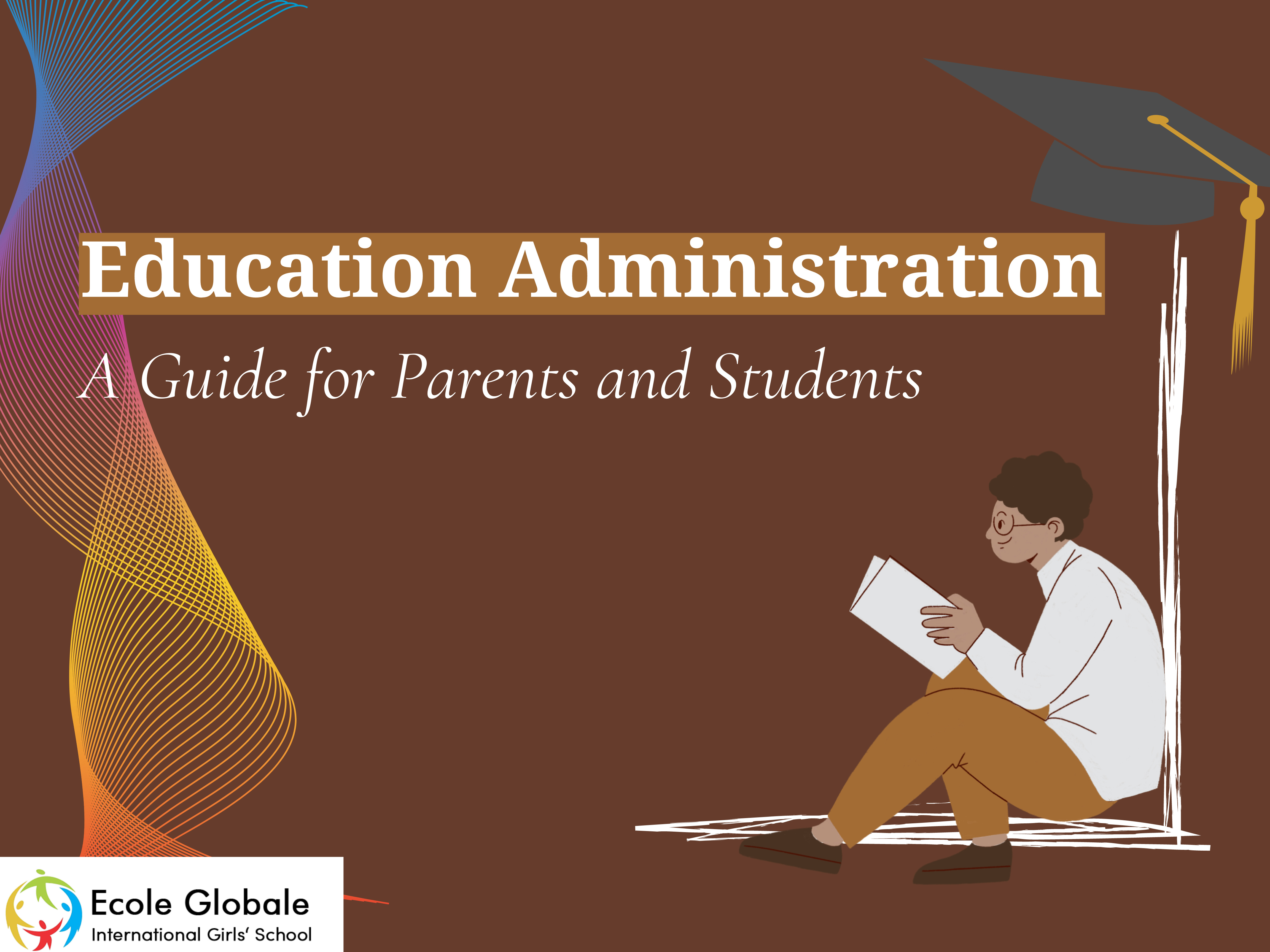Education administration plays a vital role in the functioning of schools, ensuring that all resources, both human and material, are effectively utilized to achieve educational goals. This article aims to provide a comprehensive understanding of education administration, its nature, objectives, scope, and basic functions. By the end of this article, you will have a clear idea of how education administration impacts the learning environment and contributes to student success.
What is Education Administration?

Education administration refers to the management of an educational institution, covering various processes to achieve specific goals. These processes include:
- Planning: Setting goals and determining the best ways to achieve them.
- Organizing: Arranging resources and tasks to implement plans.
- Directing: Guiding and supervising staff to achieve objectives.
- Coordinating: Harmonizing efforts to ensure smooth functioning.
- Controlling: Monitoring performance and implementing corrective measures.
- Evaluating: Assessing the effectiveness of plans and activities.
The ultimate aim is to create an environment where students can receive quality education efficiently and effectively.
Importance of Education Administration in Schools

Education administration is essential for several reasons:
- Meeting Legal and Financial Responsibilities: Ensuring compliance with laws and managing finances effectively.
- Measuring Student Performance: Using assessments to inform decisions about curriculum and instructional methods.
- Providing Access to Resources: Ensuring students have the necessary materials and support for learning.
- Promoting Student Success: Organizing teacher hiring and assigning effective teachers to the right classrooms.
Objectives of Education Administration

The primary objectives of education administration include:
-
Providing Proper Education to Students
Good education means offering quality learning experiences from competent teachers at a reasonable cost. This objective also emphasizes the need for both quantitative expansion and qualitative improvement of education.
-
Ensuring Adequate Utilization of All Resources
Effective use of human, material, and financial resources is essential for realizing educational goals.
-
Ensuring Professional Ethics and Development Among Teachers
Teachers play a pivotal role in the success of educational programs. Education administration aims to encourage innovation in teaching and support professional development.
-
Organizing Educational Programs for Democratic Living
Administration is responsible for creating programs that teach students the values of democratic living and citizenship.
-
Mobilizing the Community
Maintaining and improving relations with the community is key. This includes seeking community support for educational improvements and ensuring smooth examination processes.
-
Organizing Co-Curricular Activities
Effective management of co-curricular activities helps in developing students’ talents and enhancing teachers’ work efficiency.
-
Ensuring Work Efficiency
The main objective of administration is to ensure tasks are completed effectively and efficiently, benefiting both individuals and society.
-
Preparing Students for Vocations
Education administrations aims to equip students with the skills and knowledge needed for various career paths.
-
Developing Scientific Attitudes
Encouraging students to adopt scientific thinking and an objective outlook is a key goal of education administration.
-
Improving Education Quality
Continuous supervision and guidance of teachers help in enhancing the quality of education provided to students.
Scope of Education Administration

Education administration covers a wide range of activities and levels within the educational system:
Levels of Education
- Pre-primary or Pre-school Education
- Elementary or Primary Education
- Secondary Education
- Higher Secondary or Post-secondary Education
- Higher or Tertiary Education
Education determines the nature and system of administration at all these levels.
Forms of Education
- Formal Education
- Non-formal Education and Adult Education
- General Education
- Vocational Education
Each form of education requires a specific administrative approach.
Types of Administration
- Democratic Administration
- Autocratic Administration
- Nominal Administration
- Real Administration
Different types of administration are applicable depending on the educational context.
Management Aspects
Education involves various management aspects such as planning, organizing, directing, coordinating, supervising, controlling, and evaluating.
Levels of Administration
- Central Level
- State Level
- District Level
- Block Level
- Institutional Level
The institutional level is where the practical application of education administration is most evident.
Activities and Programs at the Institutional Level
- Deciding the purposes of the institution or school.
- Planning academic and co-curricular activities.
- Preparing time tables and schedules.
- Assigning duties and responsibilities to staff members.
- Organizing curricular and co-curricular programs.
- Directing and motivating staff.
- Coordinating efforts to achieve goals.
- Controlling staff activities.
- Reviewing progress, achievements, and addressing failures.
- Developing staff skills.
- Maintaining order and discipline.
- Managing materials and finances.
- Keeping records up to date.
- Supervising teachers and other employees.
- Providing feedback and taking remedial measures.
Basic Functions of Education Administration

The basic functions of education administration can be categorized into general and contextual perspectives:
General Perspective
- Planning: Determining objectives and ways to achieve them.
- Organizing: Arranging resources to implement plans.
- Directing: Leading and supervising staff.
- Coordinating: Ensuring all efforts are aligned.
- Supervising: Monitoring activities to meet standards.
- Controlling: Implementing measures to correct deviations.
- Evaluating: Assessing the effectiveness of activities.
Conclusion
Educations administration is a vital component in the functioning of any educational institution. It ensures that all resources are used efficiently to provide quality education to students. By understanding its nature, objectives, scope, and basic functions, parents and students can appreciate the importance of effective education administration in creating a conducive learning environment. The role of education administration is crucial in shaping the future of students and, by extension, the society at large.
Frequently Asked Question
Q1. What is Education Administration?
Answer. Education Administration manages a school’s resources and processes to achieve educational goals.
Q2. Why is Educations Administration important?
Answer. It ensures legal compliance, resource management, and student success by organizing and directing school activities.
Q3. What are the main functions of Educational Administration?
Answer. Planning, organizing, directing, coordinating, controlling, and evaluating educational activities and resources.
Q4. How does the Administration impact students?
Answer. It ensures quality education, proper resource allocation, and effective teaching, enhancing the learning environment.
Q5. What levels of education does the Education Administration cover?
Answer.It covers pre-primary, primary, secondary, higher secondary, and tertiary education levels.









